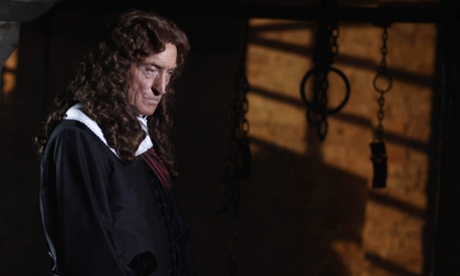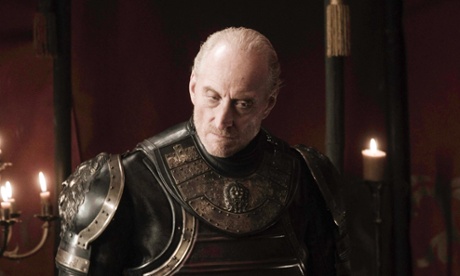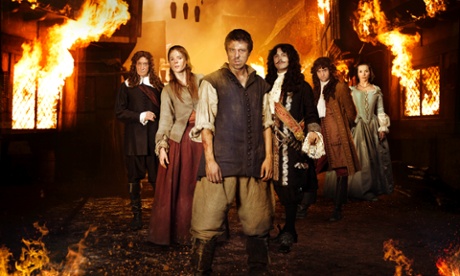
It is fair to call Charles Dance a veteran of UK television. His four decades of screen credits include some of the most critically acclaimed dramas, from Jewel in the Crown and Rebecca to Bleak House and Game of Thrones. Yet having worked through what he calls “the golden age” of British TV in the 80s, he is firm in one belief – that the current state of television in this country is shamefully bleak.
“We need to look to our laurels a bit with television in this country”, he said. “ I don’t think enough risks are being taken in drama television in the UK and I think a lot of programme makers are underestimating the intelligence of the viewing public, basing it all on ratings. Just because 12 million people watch a pile of reality TV shit about something or other, that doesn’t mean that’s the only type of programme you make.
“There’s great swathes of people now who don’t watch any British television, because there’s nothing there worth watching.”
Such a damning condemnation of the current state of British television comes just as Dance’s latest television project, ITV’s dramatisation of the 1666 Great Fire of London, makes its television debut this Thursday. The four-part drama was written by ITV’s political correspondent, Tom Bradby, with Dance playing the fictional villain, the King’s ruthless intelligence officer Lord Denton.

Yet, after four years playing the vicious Tywin Lannister in Game of Thrones, the HBO fantasy show that has been one of the biggest success stories in television in recent years, the opulent American production has made the 67-year-old lament the days when British television led the creative agenda.
“We used to have this reputation in Britain of having the finest television in the world and it was, for a long time,” said Dance. “America, for a long time, would look at what was going on on this side of the Atlantic, at quality television like Brideshead Revisited and the Jewel in the Crown – well now it’s the other way around.”
The problem, he says, lies in the unwillingness to financially invest in drama and says recent attempts by British television to emulate American hits have come across as nothing more than “an am-dram performance”.
“We are not amateurs so that’s not good enough,” Dance continued, getting increasingly more irate. “And certainly the BBC seem to be more interested in real estate than new drama.”
Indeed, the actor is adamant that if the original plans for Game of Thrones, a show filmed in both Northern Ireland and Scotland, to be a co-production with the BBC had gone ahead, “they would have pulled the plug after two seasons.”
“You know what would have happened, they wouldn’t have spent enough money,” he added. “What I see happening a lot of the time in this country is we spend 100 and try and make it look like a thousand. And a lot of the time, we don’t pull it off. American networks like HBO spend money and they spend it in the right way.”
Dance’s solution is simple. “We have to take risks in British television” he said. “It has to stop playing to the lowest common denominator and patronising people. And I’m certainly not the only actor who thinks British television needs a bit of a kick up the arse.”

Nonetheless, he saluted the “ambition” of The Great Fire, which saw ITV spend more than £1m on a purpose built set of restoration-era London, only to burn it to to the ground in the filming of the four-part drama.
Despite admitting the prospect of playing yet another villain was “quite tedious”, it was a personal interest in the period of Charles II’s return to the throne and the conspiracy theories that abounded around the events of 1666 that eventually convinced Dance to put aside his dislike for “those dreadful periwigs” and accept the role, alongside Broadchurch star Andrew Buchan and Danny Mays, who plays famous diarist Samuel Pepys. He revelled in the interesting parallels between the state of politics then and now.
Dance said: “I think it’s a great era in history. There had been this sterile period after Charles I’s decapitation, the Cromwellian rather severe and puritanical era whcih was very dull for a lot of people. Then the monarchy was restored and there was this great feeling of optimism. But Charles II just turned out to be this louche party animal who was completely out of touch. It was a bit like, in my mind anyway, the day that Tony Blair swept into power and the piece of grey flannel that had been flying from the national flagpole was pulled down and this big smily, ‘everything’s going to be alright figure took charge’.” Trailing off with a deep laugh, he added: “Little did we know…”
However, his recent years working on Game of Thrones, a show rife with sexually explicit scenes, clearly had an impact on the actor who bemoaned the absence of the illustrious libertine, the Earl of Rochester, from the new drama.
“It’s quite a tame portrayal of Charles II’s court, which was actually quite sordid,” said Dance. “ I’m surprised Rochester doesn’t appear somewhere in there, swanning around, behaving appallingly and quoting vulgar poems. I would have liked it to have been a lot raunchier.”